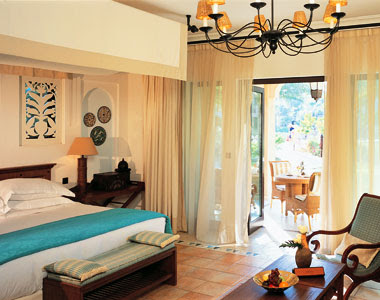Corrupt Nigerian leaders have found a safe haven in Dubai, one of the seven emirates in the oil-rich United Arab Emirates (UAE), for stashing away their loot. The spendthrifts among them have also devised ways to satisfy their celebratory appetite at the drop of a hat. Sunday Sun investigation during a recent visit revealed that with tightening of the noose on slush funds in the Western world, some smart Nigerian leaders turned their focus to the delectable tourism city and business hub.
It was gathered that a former military administrator, who became an ambassador, owns a 35-storey tower named after him in the city. The structure is worth several millions of dollars.
A former Nigerian vice president also has a state-of-the-art building in the upscale Jumeirah district, close to the Atlantis Hotel, which is one of the most expensive and luxurious hotels in the world.
Among others said to own exotic structures in the Arab city are a former Lagos State governor, who is gradually emerging as a political Sheikh in Nigeria as well as a former radical Federal Capital Territory (FCT) Minister from the North. Both property are in the Deira axis of the emirate. Harried former Delta State governor, James Ibori - currently facing corrupt enrichment charges before a Crown Court in London - was equally said to have eye-popping investments there. read more
Our source revealed that during the late President Umaru Yar’Adua ill-health saga, the cabal, made up of his loyalists and some northern governors, usually congregated at Ibori’s home to plot their strategy before going to Saudi Arabia, where the late Nigerian leader was hospitalised.
“Nigerians are well respected here and they have the highest number of visa applications on a daily basis. The Dubai authorities grant not less than 95 per cent of these applications.”
“Besides, it is safe for the corrupt leaders to hide their stolen wealth because they would not be exposed unlike in America or Europe. Here, Nigerian leaders buy estates and pay cash even though most of the property consultants and firms operate flexible payment terms. The firms agree to spread the payment period over five to eight years. But these leaders prefer to develop the Dubai economy and, unfortunately, it is with the money they have stolen,” he lamented.
Other features however make the emirate attractive, such as its loosely regulated free trade zones, thriving ports, freewheeling property sector and permissive business environment. These combine to make Dubai very attractive for money launderers.
According to an international crime threat assessment prepared for the United States government by the Federation of American Scientists in 2002, “money-laundering activity in the UAE total $1 billion annually” after Dubai’s property sector was opened up to foreign buyers. But the authorities do not agree as they play down the extent of money laundering, saying there were laws to fight it.
Sunday Sun further learnt of governors that do not own property in Dubai but live large and revel in the splendour of the Burj Al Arab Hotel.
Described as ‘seven-star’, it is the most luxurious hotel in the world where the rate of a suite ranges between $1,000 (N160,000) and $28,000 (N4.5 million) per night. The iconic 60-floor structure, designed like the sail of a boat (actually built to resemble the sail of a Dhow, a type of Arabian vessel), stands 321 metres (1,053 feet) on an artificial island about 280 metres (919 feet) from the Jumeirah beach, and is connected to the mainland by a private curving bridge.


